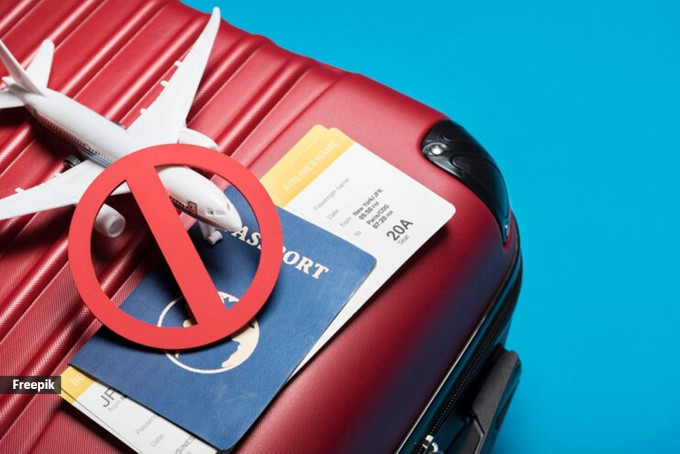Content creator allegedly scammed by taxi driver in Kazakhstan; expert shares common travel scams to watch out for and ways to avoid them
Travelling can be an enriching experience, but it also comes with its own set of risks, including the potential for scam. Indian travel content creator, Komal Maheswari, revealed that she experienced a distressing situation when a local taxi driver in Kazakhstan scammed her.
She claimed that the taxi driver initially quoted a fare of 1,000 Tenge (about Rs 170), but ultimately charged her a staggering 77,000 Tenge (around Rs 13,000). “If I were travelling solo, I would have booked a day flight and pre-booked my cab but because I wasn’t and I just landed in a new country, I was more happy than aware, and wasn’t in the mindset that a scam can happen with me right away!” she captioned the post where she detailed the incident.

View this post on Instagram
A post shared by Komal Maheshwari (@komalified)
Understanding the types of scams that are prevalent in different regions and learning how to avoid them can make a significant difference in ensuring a smooth and enjoyable trip. Anjali Gupta, director, Y Not Travel, tells indianexpress.com, “When travelling internationally, it’s crucial to activate international roaming on your phone and avoid relying on local SIM cards. Download essential apps with your credit or debit card already added. Opt for branded hotels, especially in less developed countries, even if they come at a higher cost.”
Common scams to look out for when travelling abroad
From 40+ years of travel experience, Anjali Gupta says, here are some common scams to watch for:
Pickpocketing: Thieves use distractions to steal valuables. Keep your belongings secure and stay alert in crowded places.
Commissioned Factory Visits: Drivers may take you to overpriced shops for commissions. Choose your own destinations.
Restaurant Scams: Some drivers recommend restaurants where they get a commission, often at inflated prices. Stick to trusted suggestions.
Long Taxi Routes: Drivers may take longer routes to increase the fare. Use GPS or ride-hailing apps to track your journey.
Begging Scams: Organised groups may ask for money or goods. Donate to reputable charities instead.
Money Exchange Scams: Beware of counterfeit money or shortchanging at unofficial exchanges. Use established banks.
Fake Police: Scammers posing as police may demand bribes. Always ask for proper identification.
‘Closed’ Attractions: Scammers may divert you to commission-based spots by claiming attractions are closed. Verify attraction status online.
Fake Tickets: Purchase tickets from official vendors to avoid overpriced or fake tickets.
Overpriced Souvenirs: Some shops inflate prices for tourists. Research and bargain where possible.
‘Helpful’ Locals: Be cautious of locals who offer to guide you to shops or demand payment. Navigate independently if possible.
Fake Charities: Scammers posing as charity workers can be deceptive. Donate to well-known organisations.
Strategies can travellers take to minimise their risk of falling victim to scams
Gupta informs, “To minimise the risk of falling victim to transportation scams, plan your routes in advance using apps to avoid detours. Stick to ride-hailing services for added transparency and safety, and carry small bills to prevent overcharging or receiving counterfeit change. Agree on taxi fares upfront if the metre isn’t used, and research common local scams to be aware of potential tricks.”
Public transport is often a safer and more economical choice, Gupta continues, so secure your belongings in crowded areas. Have local emergency numbers and your hotel’s contact details readily available, and opt for reputable transportation services, especially in unfamiliar areas.
“Avoid unsolicited offers from drivers at airports or tourist spots, and use official channels instead. Stay connected with a local SIM or portable Wi-Fi for access to maps and translation tools, and trust your instincts — if something feels off, choose an alternative and prioritise your safety,” she cautions.
 Public transport is often a safer and more economical choice (Source: Freepik)
Public transport is often a safer and more economical choice (Source: Freepik)
What to do if you fall victim to a scam?
Immediate Actions:
- Stay Calm: Keep a clear head to assess the situation.
- Remove Yourself: Safely distance yourself from the scammer.
- Document Everything: Take photos, note details, and keep evidence.
Seeking Assistance:
- Contact Local Authorities: Report the scam to the police; get a report.
- Notify Your Embassy: They can offer support and advice.
- Alert Your Bank: Report any fraudulent transactions immediately.
- Inform Travel Insurance: They might cover losses; provide all documentation.
Recovering Losses:
- Request a Refund: Politely ask the vendor for a refund if possible.
- Leave Warnings Online: Share your experience to warn others.
- Follow Up with Authorities: Stay in contact for updates on your case.
📣 For more lifestyle news, click here to join our WhatsApp Channel and also follow us on Instagram
Disclaimer: The copyright of this article belongs to the original author. Reposting this article is solely for the purpose of information dissemination and does not constitute any investment advice. If there is any infringement, please contact us immediately. We will make corrections or deletions as necessary. Thank you.
